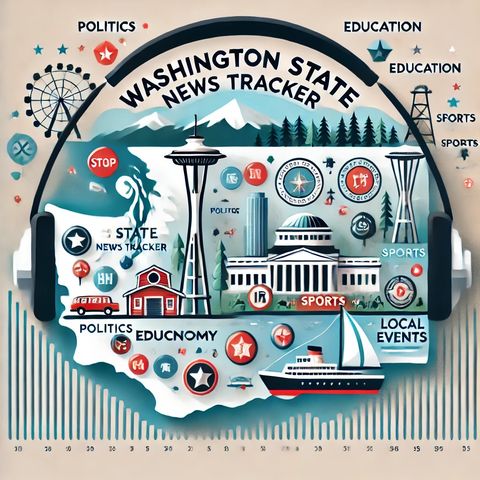6 NOV 2024 · Washington State, often a focal point in U.S. political discussions due to its progressive political landscape, continues to foster significant political trends and changes into 2023. With a robust voting base and active political engagement, Washington has been consistently dominated by Democratic candidates in recent elections, particularly in statewide and national races.
The political scenario in Washington is largely influenced by the diverse demographic and economic compositions of its regions. The Puget Sound area, including Seattle, represents a stronghold for the Democratic Party, where liberal ideas concerning environmental policies, social justice, economic reform, and healthcare are widely popular. This contrasts with the more conservative views typically found in Eastern Washington, which is more rural and agricultural.
In national elections, Washington has solidified its position as a reliably blue state over the past decades. It has awarded its electoral votes to Democratic candidates in every presidential election since 1988. Moreover, the state government, as of the latest election cycles, is controlled by Democrats, who hold the governor’s office as well as the majority in both chambers of the state legislature. Governor Jay Inslee, a Democrat who has been in office since 2013, has focused his administration on environmental issues, social equity, and economic growth strategies that leverage the state's robust technology sector.
The state's political alignment is also reflected in its congressional delegation. As of the latest election results, the majority of Washington's Congressional representation is Democratic, holding both U.S. Senate seats and a significant majority of the state's U.S. House seats.
Washington's progressive policies extend beyond just political affiliations. It is recognized for pioneering policies on minimum wage laws, legalization of marijuana, same-sex marriage, and environmental sustainability. Washington was among the first states to pass aggressively progressive climate policies, championed by Governor Inslee, who emphasizes clean energy and sustainability as key components of the state's policy and economic initiatives.
Despite a strongly blue leaning on the coast, political contention exists, particularly with debates around tax policies, environmental regulations affecting business, and rural-urban divides on issues such as gun control and land use. The state continues to struggle with challenges such as homelessness, especially in Seattle, and economic disparities across different regions.
Engagement in political processes remains strong in Washington, with voter turnout consistently higher than the national average. This is facilitated by voter-friendly policies, including mail-in ballots, same-day registration, and extensive voter education programs, making the state a leader in voter access initiatives.
In summary, Washington State stands out in the U.S. for its consistent Democratic majority and progressive policies, contributing significantly to the nation's political, environmental, and social discourse. While the state supports a diverse range of political opinions and is marked by a distinct rural-urban split, its overall political landscape continues to be shaped by a predominantly liberal voter base focused on forward-thinking policies.


